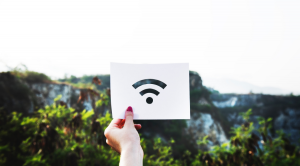How to prevent phishing attacks
Phishing, a sophisticated 21st century technique, demonstrates the skill of intruders as they use social tricks to defeat you. Their goal could be to reveal your personal information, or cause malware to infiltrate your device. This is a cruel way to steal passwords, take over your accounts, or get into systems without their permission. They can be conducted through a variety of channels, wherever you use a computer or electronic device: by phone, by email, on the web, or even in person. The term "phishing" has never stopped evolving, from "password fishing" to combining "phone" and "fishing." It can also be traced back to root terms such as "initial hacking" and "phreaking," as phishing has existed and evolved since before the advent of the Internet.
1.Report phishing emails
If you've discovered a phishing email has entered your inbox, please exercise caution and common sense. This deserves praise. Don't forget to report it to your email service provider immediately. This action not only protects you, but also helps them improve their spam detection mechanism in the future, ensuring the safety of you and the other user community. If a phishing email impersonates a real business, notify the business immediately. This can help them confront misuse of their information and ensure that intrusions do not disappoint their users.
2.Use a password manager
Password managers securely store your login information. Some can even warn you if you're using an insecure login page, helping to prevent you from falling for a scam.
3.Verify the destination site's SSL credentials
SSL, short for "Secure Socket Layer," is an extremely important element in ensuring online safety. When you visit an SSL certified website, you will typically see a URL address that begins with "https," and this indicates that all data you access and exchange with that website is encrypted. , starting from the moment it leaves the server and arrives on your computer. This ensures that your personal information is kept safe, and cannot be easily stolen during transmission.
4.Be wary of pop-ups
Pop-ups are often an integral part of the online experience, requiring user interaction. Typically, when we encounter requests such as allowing cookies, saving passwords, or sending notifications, we feel comfortable because they reflect the convenience and safety of that site. However, be wary of pop-ups asking for sensitive information like login credentials or credit card information. This is important because any personal information you provide into fake login prompts will be sent directly to the attackers' servers. These guys can then use that information to access your account and even other accounts you may be linked to.
5.Avoid using public networks
Public Wi-Fi networks are often open, unsecured networks, and this poses worrying security risks. Not only can third parties track your online activities, but there is also a high risk of creating fake Wi-Fi hotspots. Attackers can easily create a fake Wi-Fi network, then collect your login information once you connect to it.
6. Be careful with shortened links
Shortened links are no longer strange in the online world. They are often seen in social media posts, making the post cleaner and helping to save character space for the rest of the message. One concern, however, is the way shortened links often disguise the original link by turning it into a random series of numbers and characters. This makes it difficult to evaluate the security of the link. In terms of security, we cannot know exactly where that link will take us. There is a risk that we will be taken to a fake website, used to steal our login credentials or harm our device, and this is something we need to be wary of.










